Description
ABSTRACT
A “Deeper Dive”: The New Deduction of Tax at Source (Withholding) Regulations, 2024
Stephen Chima Arubike* and Adeyinka Adeoye**
ABSTRACT
This article provides a comprehensive analysis of the Deduction of Tax at Source (Withholding) Regulations, 2024 (the “Regulations”), issued by Nigeria’s Minister of Finance and the Coordinating Minister of the Economy. Effective from January 1, 2025, the Regulations replace previous regulations on the subject, introduce several significant changes to the country’s withholding tax (WHT) regime. Key provisions include adjustments to applicable tax rates, expanded coverage of taxable entities, and a new emphasis on taxpayer identification numbers (TINs) to drive compliance. The article also addresses critical legal concerns raised by the Regulations, including conflicts with primary statutes, overreach in the Minister’s authority, and the unfair imposition of penalties on non-resident companies. While the Regulations aim to simplify WHT processes, reduce tax burdens on small businesses, and enhance tax compliance, several ambiguities and issues remain,
particularly regarding non-resident taxation and penalties for non-compliance. The article concludes by discussing the transition period and its potential implications, as well as the need for further clarification on certain provisions to ensure fairness and legal consistency in implementing the Regulations.
Keywords: Deduction of Tax at Source (Withholding) Regulations, 2024, Withholding Tax (WHT), Taxpayer Identification Numbers (TINs), Non-resident taxation, Primary statutes.
INTRODUCTION
The withholding tax (WHT) system was introduced in Nigeria to permit taxes to be deducted at the source from payments intended for another person and remitted to the appropriate tax authority by the payer. This system ensures that tax authorities collect tax revenue early before the actual tax payment is due, from a party obligated to pay the taxpayer. This helps streamline the tax collection process and reduce the risk of tax evasion. WHT is thus not a separate or independent tax. Rather, it serves as a mechanism for collecting income tax at the source.
In Nigeria, WHT is deducted from various types of payments, including rents, dividends, interest, royalties, commissions, and professional fees. Although the recipients of these payments are generally responsible for income tax on them at the end of the assessment year, WHT ensures that tax on these payments is collected in advance. This allows the amount of WHT already paid to be deducted from the taxpayer’s annual tax payment. Thus, when calculating their annual tax, recipients whose income has had WHT deducted will report the full amount of their income and claim credit for the WHT already deducted. This credit is then applied against their final tax liability
*LL.B, BL, FCTI., G. Elias
**LL.B, BL, ACTI., G. Elias

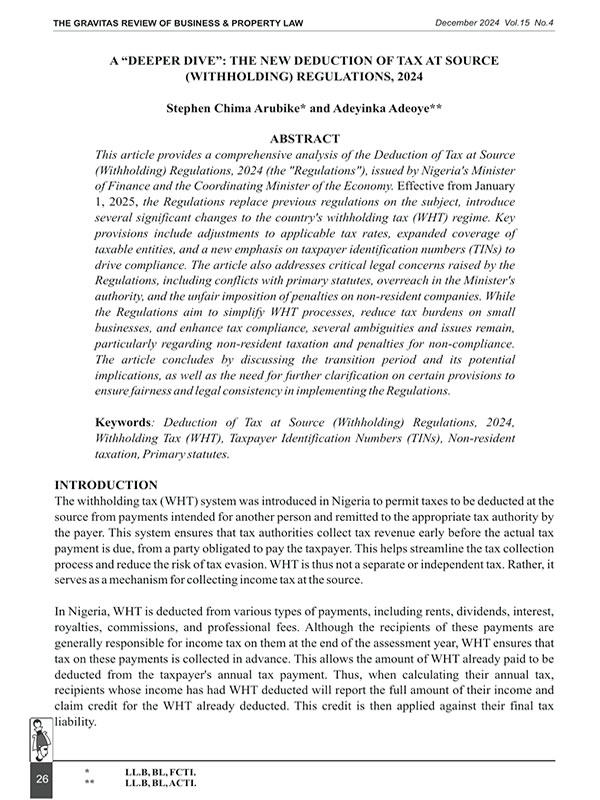
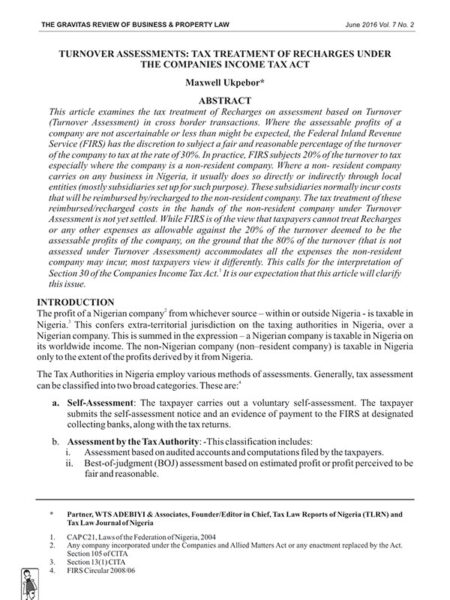
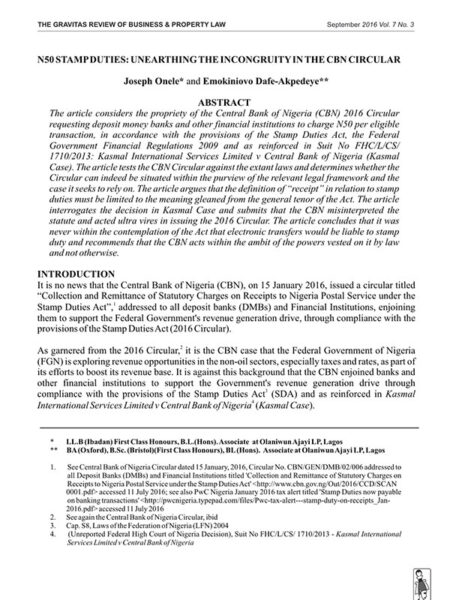
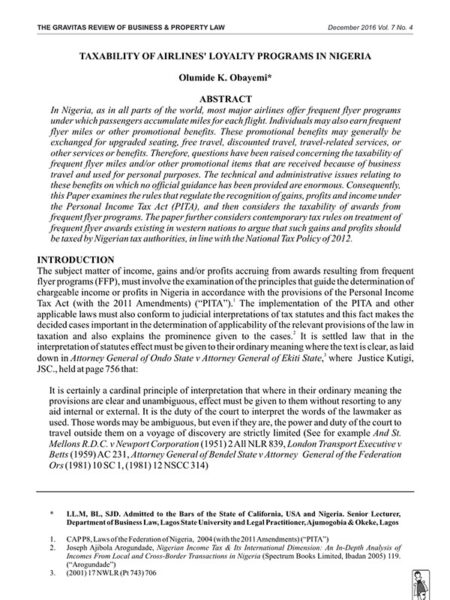
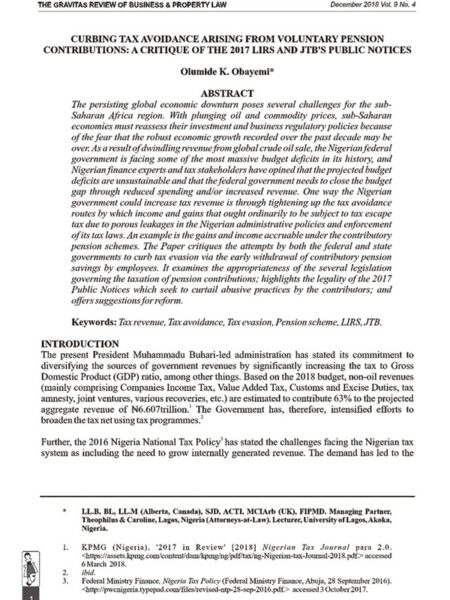



Reviews
There are no reviews yet.